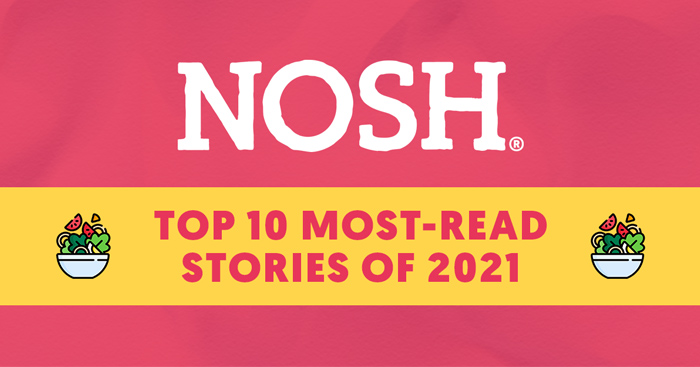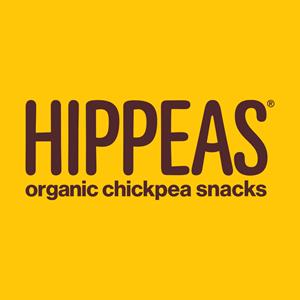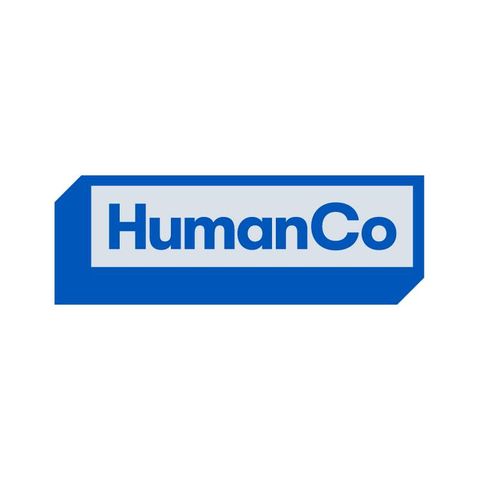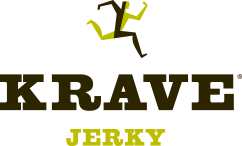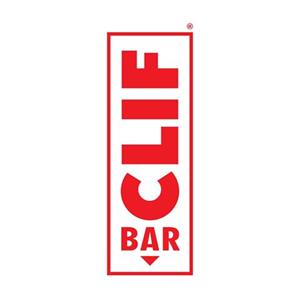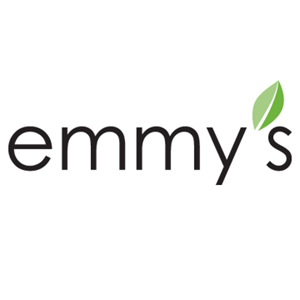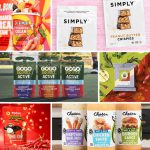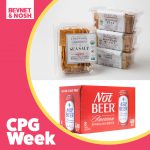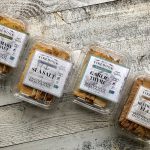Top NOSH Stories of 2021: Investments and Acquisitions Ramp Up
From ongoing supply chain disruptions to economic instability, food makers continued to grapple with the impact of the COVID-19 pandemic throughout 2021. However, the industry pressed onward embracing challenges and pivoting with new product lines, formats and strategies to keep their heads above water. Considering all of the upheaval of 2020, the theme of this past year is slightly more positive with plenty of new entries to the industry, investments in plant-based and strategic acquisitions.
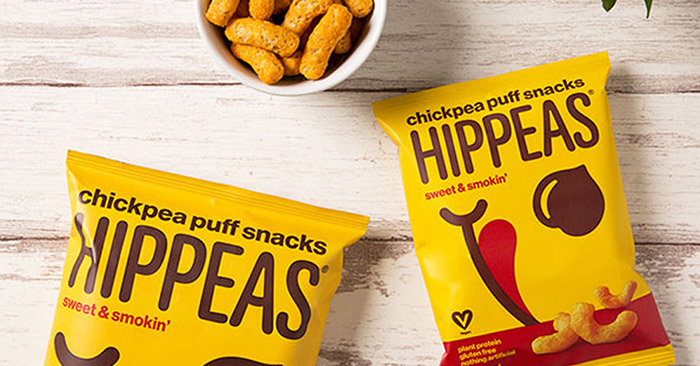
1. Hippeas Sees Change in Investors and Owners, Leadership Team
After announcing the close of a $50 million funding round in early January, legume-based snack brand Hippeas reported its early investors and CEO would exit the company as investment firm The Craftory took over as its largest shareholder. Hippeas founder, Livio Bisterzo, was temporarily renamed CEO as the company looked for new leadership.
At the time of the deal, Bisterzo said moving forward the company will be less focused on widespread distribution gains, and consumer education and instead, would work to grow the business profitably and sustainably over the next five years. He added that while innovation will remain a core component, rather than introducing new product lines, Hippeas planned to focus on product improvements and new flavors for both its puff and chip lines.
“We have a unique opportunity over the next few years to come to build what will become a very big business,” Bisterzo said. “I honestly believe that the first four years was a great starting point…but the next few years to come are even more exciting.”
Soon after the Craftory invested, Hippeas brought on snack veteran Paul Nardone to take over the role of CEO.
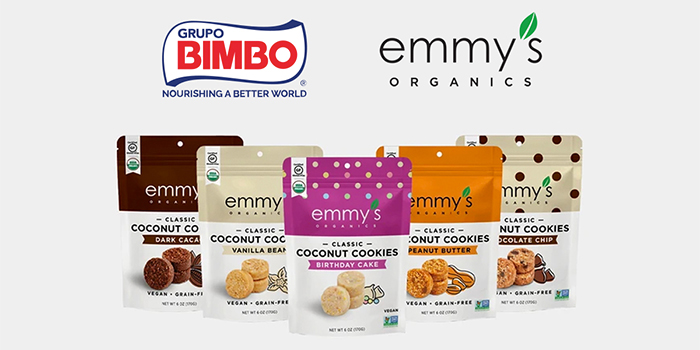
2. Grupo Bimbo Acquires Emmy’s Organics
After over a decade of operations, gluten-free and vegan cookie maker Emmy’s Organics announced in August that it was closing in on “legacy brand” status following its acquisition by Mexico-based baked goods company Grupo Bimbo. Emmy’s joined Bimbo Bakeries USA (BBU) portfolio which includes iconic baked goods brands such as Entenmann’s, Thomas, Sara Lee and Arnold.
The terms of the deal, which closed in May, were not disclosed, but all 38 members of the Emmy’s team, including its current executive leadership, were retained. The company’s CEO Bill Kelly is now in the role of general manager and the company continues to self-manufacture from its Ithaca, New York facility. Prior to the acquisition, Emmy’s hadn’t taken any outside investment, however co-founder Samantha Abrams said the company reached a point where not taking on capital was hindering growth.
For Grupo Bimbo, this deal marked an entry point into the better-for-you space while, for Emmy’s, it should allow the brand to capitalize on BBU’s expertise. The company also plans to expand its employee benefits and gave a portion of proceeds from the sale to its entire staff, which includes a manufacturing team made up solely of refugees from Burma.
“It was one of the best days we’ve had as entrepreneurs,” Abrams said. “We’ve always recognized that everyone at Emmy’s has had a hand in our growth, from our VP of sales to our sanitation crew, and so we wanted everyone to be rewarded for this sale — not just us.”
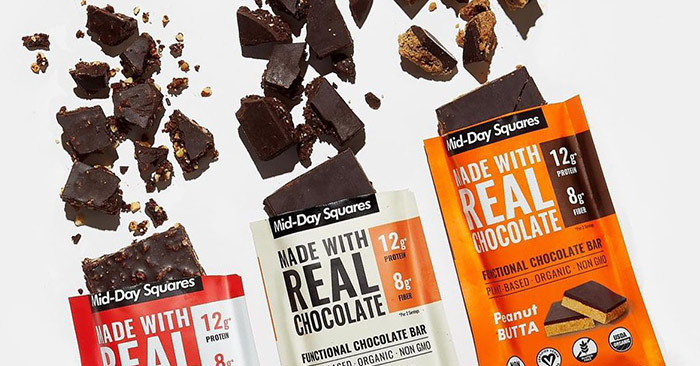
3. Mid-Day Squares Closes Round, Looks to U.S. Expansion
In March, Canadian company Mid-Day Squares closed a $4 million funding round to expand distribution of its functional chocolate bars further into the U.S. The round was led by Boulder Foods Group (BFG), with participation from Selva Ventures, Harlo Capital, and several angel investors including Mike Fata, the founder of Manitoba Harvest.
The company’s three-SKU line of refrigerated protein bars use limited-ingredients and are self-manufactured, a business strategy that its founders said has become part of its brand identity. Dubbed “millennial manufacturing,” leaders said they make sure production employees feel as valued and connected to the company’s growth as operations, sales and marketing staff.
This effect is visible especially on the brands social media platforms, where it shows behind the scenes footage of “the good, the bad and the ugly” of running a business in reality tv style footage including clips on “business therapy” to videos titled “Building a Brand By Giving Zero F*cks.”
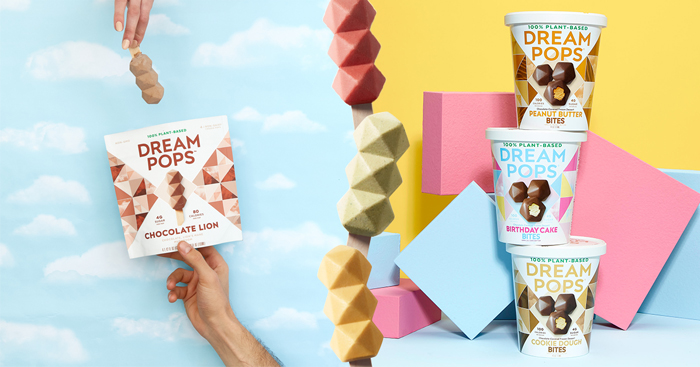
4. Dream Pops Raises $6M, Plans for Expansion Beyond Frozen
In November, frozen novelty brand Dream Pops raised $6 million, marking the company’s largest raise to-date and the entrance of its first institutional investors which included Melitas Ventures. In addition, NFL quarterback Cam Newton, Fanatics CEO Michael Rubin, Maveron co-founding partner Dan Levitan and Lokai founder and CEO Steven Izen, among others, also took part in the round.
With this new capital the company plans to expand into the confection aisle and increase the distribution of its plant-based pops and bites by early 2022. In addition to expansion, the company is restrategizing and stalled operations of its ecommerce site. Like its original business strategy which focused entirely on D2C sales, shipping frozen products proved to be too expensive. According to David Greenfield, the company’s founder and CEO, the ultimate goal is to launch plant-based versions of “American cult classics” in candy, chocolate and frozen categories — with shelf stable products sold via ecommerce platforms

5. Expo East Concerns Grow, From Safety to Sampling
As a return to in-person tradeshows approached with Natural Products Expo East in September, brands questioned the event’s COVID-19 safety protocols, possible financial losses and whether there would be enough retailers attending to justify the trip. Although the Fancy Food association announced it would move its own September trade show to a virtual format, New Hope assured attendees it would push onward, stating it would not cancel the show at the last minute, as was the case with its flagship event, Expo West, in 2020.
However, numerous brands eventually cancelled their booth in the weeks and days leading up to the event and many buyers pulled out of attendance as well. Though New Hope’s website listed retailers including Rite Aid, Natural Grocers and Earth Fare, ultimately many larger retailers opted out of attending or sending large teams.
“[What] pushed us over is genuine concern that the impact of the buyers that will be going to the shows won’t be as expected,” said Andrew Suzuka, CEO and Founder of condiment and sauce brand Otamot, which chose not to exhibit.
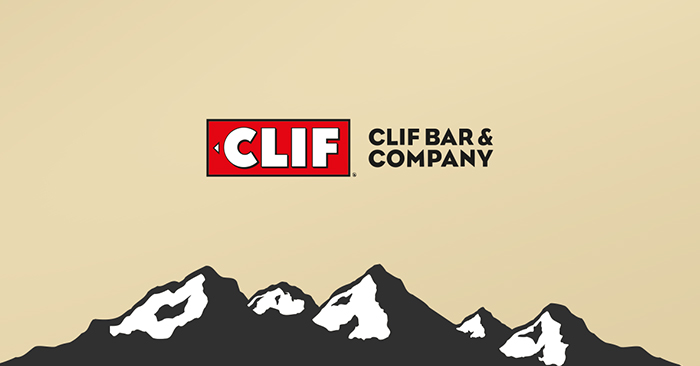
6. CLIF Layoffs & Launches Indicative of New Path Forward
In February, nine months after Sally Grimes took on the role of CEO of CLIF, the company announced it would lay off 125 employees as part of a restructuring plan which it claimed was not driven by the pandemic or a need to cut costs. Alongside this announcement, CLIF debuted CLIF Bar Thins and CLIF Pop’n Crunch, bite-sized, crunchy balls made from almonds, chia seeds, wild rice and quinoa.
The new launches contribute to the company’s “new path forward” which includes a shift to more general snacking occasions. In May the company also named three CPG veterans to its executive team including COO Shaunte Mears-Watkins, SVP of impact and communications Roma McCaig and chief financial and strategy officer Hari Avula. Since then, the company has also launched a line of pet treats and a new division for incubating brands — the same tactic CLIF’s Chief Innovation Officer Rizal Hamdallah utilized at his former employers, Ocean Spray and Tyson Foods.
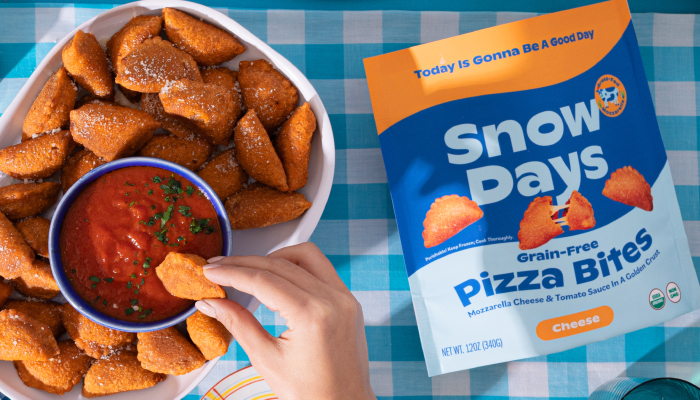
7. Hu Co-founder Takes on Frozen Aisle with New Launch
Two months after snack and chocolate brand Hu sold to Mondelēz, the company’s co-founder Jason Karp launched a new venture under his holding company HumanCo, entering the frozen aisle with better-for-you comfort food brand, Snow Days. The brand debuted in March with organic, grain-free, gluten-free pizza bites and said it aims to innovate with additional pizza products, eventually expanding into other categories in the freezer set.
“Our tagline is ‘let nature set you free’ because we’re taking an ultra comfort food that everybody wishes they could eat, a pizza bite, and made it delicious with all real ingredients,” said Karp.
Snow Days, which is sold exclusively online, is available in 40-bite bags available to purchase in 2- and 4-packs — a pack size choice Karp said would balance the elevated cost of shipping frozen products. The ultimate goal, he added, is to move into retail with smaller pack sizes. In September, HumanCo closed a star-studded $35 million investment round and announced it had acquired frozen pizza and bread producer, Against the Grain.

8. KIND Founder Launches Mexican Food Brand with Former Cholula, KIND Execs
In September, founder and chairman of KIND Snacks, Daniel Lubetzky pulled together a team of longtime colleagues and food industry veterans to launch of SOMOS, a brand taking a new approach to Mexican food. According to an SEC filing from January, the company raised $3.25 million of a total round of $3.75 million.
Though the brand holds trademarks for a wide range products, including tequila, mezcal, sauces, spreads, soups, snack mixes, seasonings, beans, and a variety of confectionery, savory snacks, and bakery items — in September Somos debuted online selling salsas, chips and shelf stable plant-based proteins.
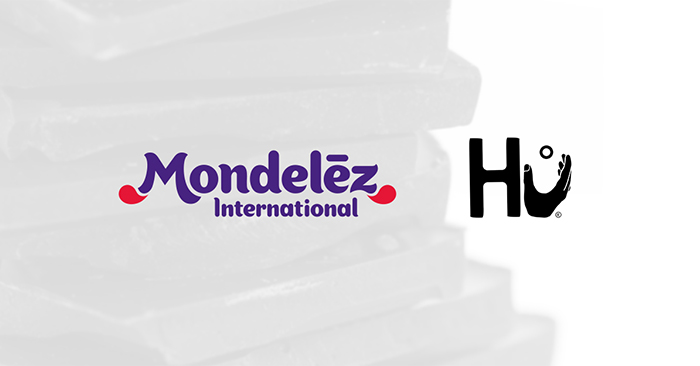
9. Snacking Giant Mondelēz Acquires Hu
At the start of 2021, in January Mondelēz International announced its acquisition of Hu Master Holdings, the parent company of Hu Products; the deal was reportedly valued at $340 million, though terms were not officially disclosed. Hu senior leadership will also receive a payout based on future performance of the company and it continues to operate as a separate business.
Mondelēz initially took a minority stake in the company in 2019, a deal which included a right of first refusal to acquire the company in an eventual sale. Since then, Hu has gone on to enter the cookie aisle, launching a line of grain-free, bite-sized cookies.
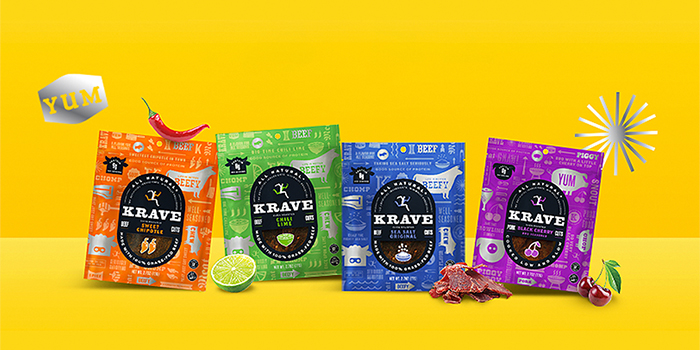
10. Krave Relaunches: Goes ‘Back to Basics’
In May, jerky maker KRAVE announced its relaunch with new packaging and products, news that came a year after it returned to its original owner and founder Jon Sebastiani. The company first sold to Hershey’s in 2015, but in May 2020 Sebastinani repurchased the snack brand via his investment group and incubator Sonoma Brands.
Core goals of the relaunch were a return to the basics and reestablishing KRAVE’s premium positioning, Sebastiani said. With a new executive team and brand look, KRAVE aimed to highlight its use of grass-fed beef – a move that positioned the line head to head with competitors such as Country Archer – and also launched a zero sugar line. Sebastinani said future innovation could include biltong, additional plant-based offerings and meat-based chips.
Since its relaunch, Krave also launched a limited-edition jerky flavor with athlete, investor and KRAVE Global Brand Ambassador Shaun White: Gold Label Spicy Sesame Ginger Beef Jerky.
